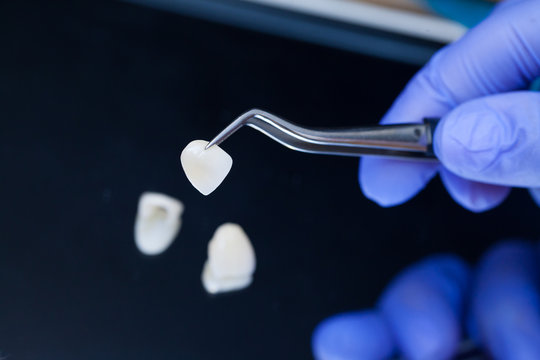Dental emergencies have a habit of arriving at the worst times, whether during a weekend family gathering, late on a Friday evening, or just before an important event. When severe pain strikes or a tooth breaks without warning, waiting until Monday morning is not an option. Quick access to a trusted emergency dentist in Leicester can be the difference between hours of discomfort and swift, professional care.
Understanding the most common reasons people need urgent dental treatment will help you recognise when to seek immediate help. Here are the top five situations that send Leicester residents looking for emergency dental appointments.
Sudden, Severe Toothache You Cannot Ignore
The most common emergency is a toothache that escalates quickly from mild discomfort to relentless throbbing. When pain shifts from a minor annoyance to sharp, constant discomfort that disturbs sleep and daily life, it often points to a deeper problem.
Why the pain intensifies
● A dental infection has reached the nerve or surrounding tissues
● Advanced decay has entered the pulp, causing inflammation
● A cracked tooth exposes the nerve to temperature or pressure changes
● Gum disease has progressed and is affecting the root
Why urgent care matters
Dental infections can spread if left untreated, leading to serious health complications. Prompt professional treatment improves the chance of saving the tooth and prevents the infection from spreading.
Red flags that need immediate attention
● Pain that wakes you at night
● Throbbing that does not respond to over-the-counter pain relief
● Swelling around the affected tooth or in the face
● Fever accompanying dental pain
Broken Or Chipped Tooth During Everyday Activities
The unexpected emergency is a tooth that fractures during routine activities such as eating, speaking, or even sleeping. Tooth fractures are more common than you might think. Whether biting into a hard piece of food, grinding your teeth at night, or experiencing trauma from sport or an accident, a broken tooth needs prompt attention to prevent complications.
Common causes of tooth fractures
● Biting down on hard objects such as ice cubes, nuts, or hard sweets
● Untreated cavities that weaken the tooth structure
● Large, older fillings that no longer provide adequate support
● Teeth grinding also called bruxism which creates stress fractures
● Sports injuries or facial trauma
Why immediate repair matters
Broken teeth expose the inner layers of the tooth to bacteria, increasing the risk of infection. Sharp edges can cut the tongue or cheeks, and a compromised tooth may break further without timely care.
Emergency treatment options
● Temporary bonding to protect exposed dentine or nerves
● Same day crowns for severely damaged teeth
● Root canal therapy if the pulp is affected
● Extraction with replacement planning when the tooth cannot be saved
Severe Swelling And Dental Abscesses
The most serious emergency involves facial swelling, gum swelling, or visible pus that indicates infection. Dental abscesses can spread quickly, especially when bacteria enter through cracks, deep cavities, or gum pockets.
Warning signs of a dental abscess
● Severe, persistent toothache
● Swelling of the face, cheek, or neck
● Tender, swollen lymph nodes
● Fever and feeling unwell
● Bad taste in the mouth from pus
● Difficulty swallowing or breathing
Why urgent care matters
Untreated dental infections can progress to sepsis, which is life threatening, and can affect the heart, brain, and other vital organs. If you have difficulty breathing, difficulty swallowing, rapidly increasing swelling, or swelling that closes the eye, call 999 or go to A and E without delay.
An emergency dentist in Leicester can assess, drain the infection when appropriate, and start definitive treatment.
Emergency care may include
● Antibiotics when clinically indicated
● Drainage of the abscess
● Root canal treatment or extraction
● Pain relief and anti inflammatory medication
Lost Crowns, Fillings, Or Veneers

When a restoration fails, the tooth beneath is left exposed and vulnerable. This often leads to sensitivity and can allow further damage.
Why restorations fail:
● Normal wear over time
● Sticky or hard foods pulling a restoration loose
● Decay developing underneath an existing restoration
● Grinding or clenching
● Age related deterioration of bonding materials
Immediate risks:
● Marked sensitivity to hot, cold, or sweet foods
● Sharp pain on biting
● Bacteria entering the exposed tooth structure
● Cracks or further fracture in the underlying tooth
Same day solutions:
● Temporary crown or filling to protect the tooth
● Permanent repair if materials and time permit
● Pain control and protection of exposed areas
If you are in Leicester, an emergency dentist in Leicester can secure the tooth and plan a definitive restoration.
Bleeding That Does Not Stop After Injury Or A Procedure
Some oozing is normal after dental treatment or oral injury, but persistent or heavy bleeding needs professional attention.
When bleeding becomes an emergency:
● Bleeding continues for more than one hour despite firm pressure
● Blood flow is heavy and does not slow
● Bleeding is accompanied by severe pain or swelling
● You feel dizzy, faint, or weak
Possible causes:
● Complications after an extraction or oral surgery
● Medicines that affect clotting
● Underlying bleeding disorders
● Infection at the treatment site
● Trauma that has damaged blood vessels
What a dentist may do:
● Apply professional pressure and dressings
● Place sutures
● Give medicines that support clotting where appropriate
● Check for underlying causes
An emergency dentist in Leicester can stabilize the site and guide follow up care.
Helpful Tips Before You See An Emergency Dentist
For pain and swelling:
● Apply a cold compress to the outside of the face for twenty minutes on and twenty minutes off
● Take over the counter pain relief as directed on the packaging
● Sleep with the head elevated to reduce swelling
For oral care:
● Rinse gently with warm salt water half a teaspoon of salt in a glass of warm water
● Avoid very hot or very cold foods and drinks
● Chew on the unaffected side
What not to do:
● Do not apply heat to swollen areas
● Do not poke or prod the area with tongue or fingers
● Do not delay treatment in the hope it will settle on its own
● Do not ignore signs of infection such as fever or facial swelling
Final Thoughts:
These five urgent dental scenarios severe toothache, broken teeth, abscesses, lost restorations, and persistent bleeding are the most common reasons Leicester residents need emergency dental care. Each one calls for prompt professional attention to prevent complications and provide lasting relief.
Swift action can save teeth, reduce the risk of serious health problems, and restore comfort quickly. Do not wait for routine hours if you are in pain or something has broken.
Be prepared. Save the contact details for a trusted emergency dentist in Leicester so you can act immediately during weekends, holidays, or late evenings.
For Leicester residents, platforms such as Emerdency have revolutionized access to urgent care. Instead of calling multiple practices during a painful episode, you can book online in minutes, even at 2 am on a Sunday. With a clear £49 platform fee and access to vetted, qualified emergency dentists across Leicester, modern booking platforms remove much of the uncertainty and delay that used to make emergencies even more stressful.
Remember, dental emergencies do not follow convenient timing. With preparation and quick action, you can get the urgent care you need, when you need it.
